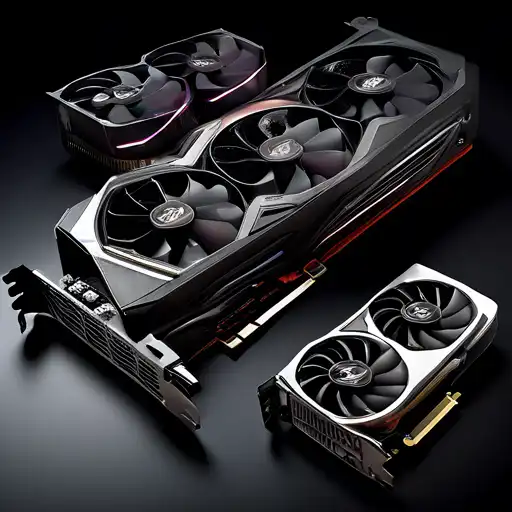Understanding GPU Basics for Gaming
Choosing the right GPU (Graphics Processing Unit) is crucial for an optimal gaming experience. The GPU is responsible for rendering images, animations, and video for the computer's screen. A powerful GPU can significantly enhance your gaming by providing smoother gameplay and higher resolution graphics.
Key Factors to Consider When Choosing a GPU
Before diving into the vast sea of available GPUs, it's important to consider several key factors that will influence your decision:
- Performance: Look for a GPU that can handle your favorite games at your desired settings.
- Budget: GPUs come in a wide range of prices, so it's important to find one that offers the best performance within your budget.
- Compatibility: Ensure the GPU is compatible with your PC's motherboard and power supply.
- Future-proofing: Consider how future games might demand more from your GPU and plan accordingly.
Comparing AMD vs. Nvidia GPUs
Two major players dominate the GPU market: AMD and Nvidia. Each offers unique advantages depending on your gaming needs.
- AMD: Known for offering great value, especially in the mid-range segment. AMD GPUs are also favored for their open-source support and efficiency in certain workloads.
- Nvidia: Often leads in raw performance and features like ray tracing and DLSS (Deep Learning Super Sampling), which can significantly improve gaming visuals and performance.
Understanding GPU Specifications
When comparing GPUs, pay attention to specifications such as:
- CUDA Cores/Stream Processors: More cores generally mean better performance.
- Memory: VRAM (Video RAM) is crucial for higher resolutions and textures. Look for at least 6GB for modern gaming.
- Clock Speed: Higher clock speeds can improve performance, but thermal and power considerations are important.
Where to Buy and What to Look For
Purchasing a GPU can be done through various retailers, both online and in physical stores. When buying, consider:
- Warranty and Support: Look for products with a solid warranty and good customer support.
- Reviews and Benchmarks: Always check reviews and performance benchmarks to ensure the GPU meets your expectations.
- Return Policy: In case the GPU doesn't meet your needs, a good return policy is essential.
Final Thoughts
Selecting the right GPU for gaming doesn't have to be overwhelming. By considering your budget, performance needs, and future-proofing, you can find a GPU that offers the best gaming experience for your setup. Remember to compare specifications and read reviews before making your final decision.
For more tips on building or upgrading your gaming PC, check out our gaming PC build guide.
